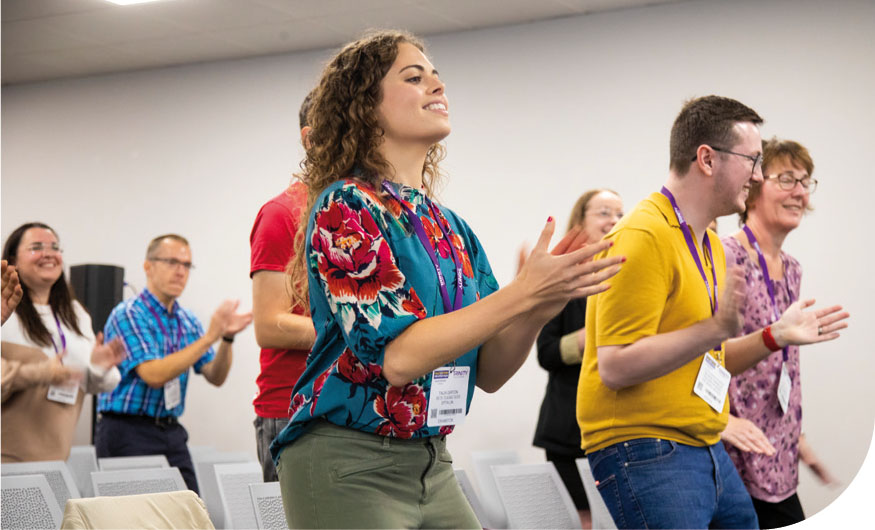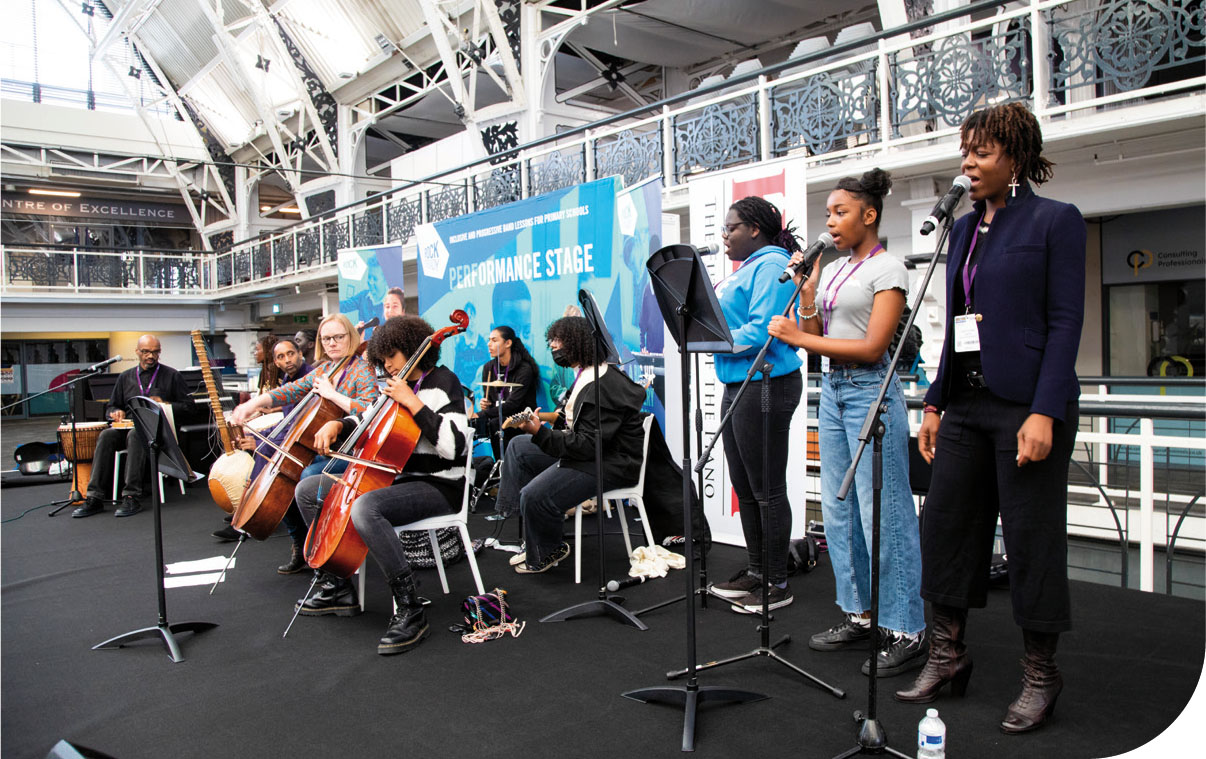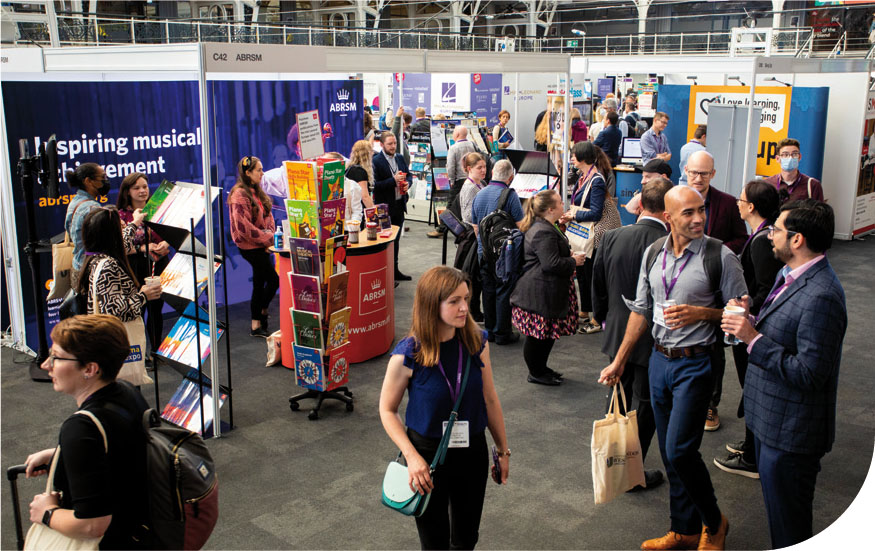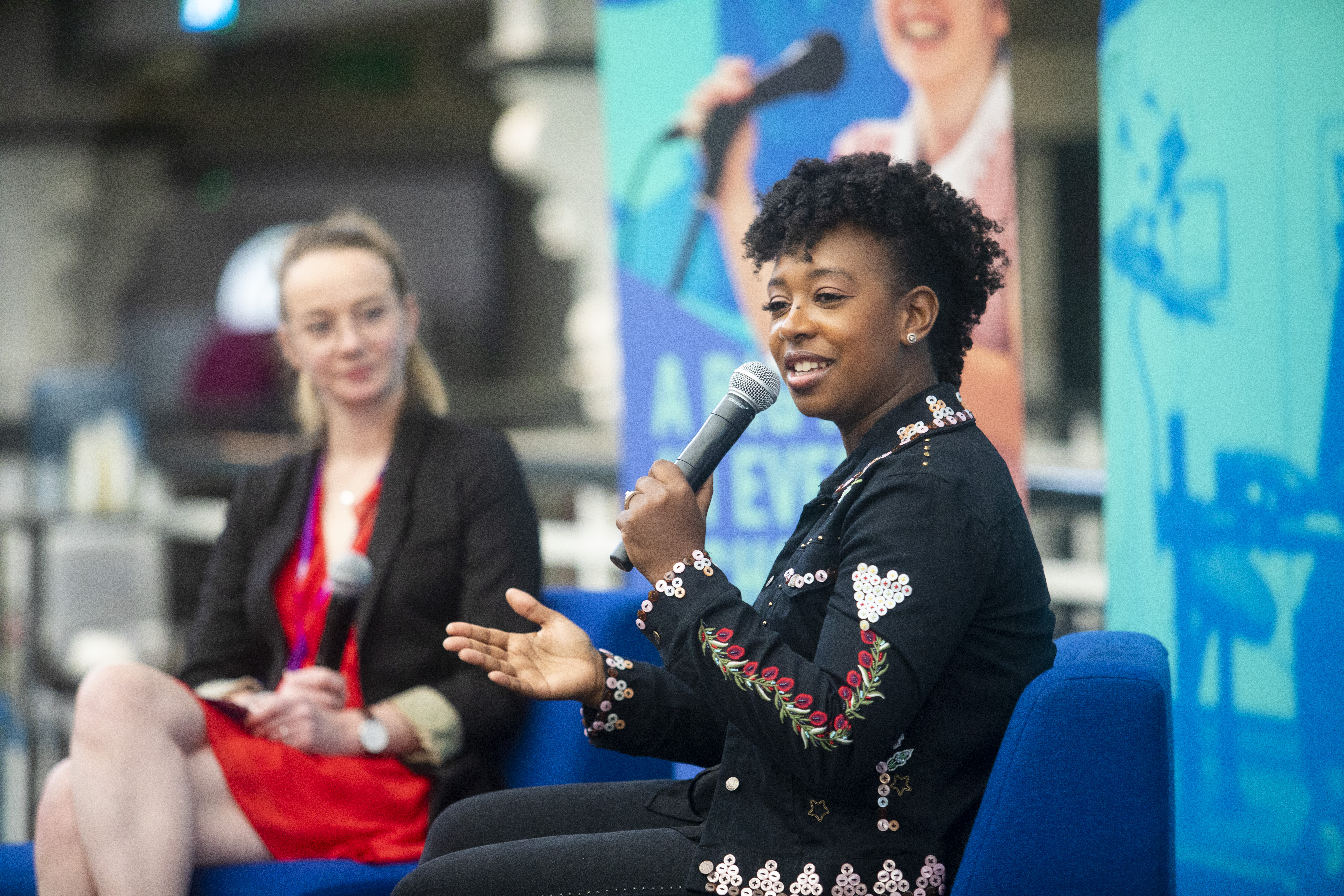
On 24 and 25 September 2021, more than 1,400 music and drama educators breathed a collective sigh of relief as the doors to the Music & Drama Education Expo opened once again. The last time music and drama teachers gathered in such large numbers was in March 2020, the Expo having miraculously gone ahead mere weeks before the country came to an abrupt halt. Although the Expo reopened, they were not the exact same doors greeting delegates: 2021 marked the Expo's first year at the Business Design Centre (BDC) in Islington.
Upon entering the BDC on Friday morning, I was immediately greeted with swathes of natural light, vast, domed ceilings and echoey acoustics, which amplified the general hubbub of people milling about chatting and, of course, trying out the various musical instruments adorning the exhibitor stands. It was great to be back; although, admittedly, this was my first Expo, having taken up my role during the pandemic. As far as my previous experience of the event goes, I was a blank canvas.

For anyone unfamiliar with the show, it is a two-day programme of more than 70 continuing professional development (CPD) sessions for music and drama educators, running alongside an exhibition and a line-up of performances and interviews. The CPD sessions are held across five theatres and are relevant to all educators, from Early Years practitioners to music hub leaders. Taking place annually, the Expo is free to attend for delegates, who receive CPD-certification for each session they attend. Thrilled to be back in person, this year's music exhibitors included ABRSM, the Music Teachers’ Association (MTA), Charanga, the Musicians’ Union (MU), AQA, the Incorporated Society of Musicians (ISM), Hal Leonard Europe (HLE), Black Cat Music, RSL Awards Ltd, and Schott Music, and many others.
All together now
The atmosphere in the BDC on Friday morning was one of palpable excitement, with teachers networking like they'd never networked before. For those who spend their working lives in one- or two-person departments, or travelling solo between schools or houses to deliver instrumental lessons, the Expo is a much-needed opportunity to talk to others in the same boat, ask questions, gain advice, and make lasting connections. Any rustiness we may have been feeling was soon forgotten when Day 1 kicked off with a 9:30am warm-up from Ollie Tunmer, director of Beat Goes On. He had us on our feet from the get-go, learning complex body percussion rhythms to James Brown's I Feel Good within minutes – although one would expect nothing less from a room full of music teachers.
 Music Makers Lab, Music Education Islington, on the Performance Stage
Music Makers Lab, Music Education Islington, on the Performance Stage
As well as physically warming us up, inspiring ideas for the classroom, and being brilliant fun, the warm-ups on both days (Ula Weber's Sing for Pleasure session on Day 2 was equally as fantastic) were ideal for starting the show with a positive burst of energy. The importance of problem-solving with optimism was a key takeaway from the Expo. Many speakers pointed out that it's all too easy to bemoan the many problems faced by the music education sector – lack of funding, lack of curriculum time, inadequate training, minimal SLT support, internal division, and so on – without providing practical ways of moving forward. The MTA's panel-style session at the end of Day 2 managed to both acknowledge the genuine issues, while also marking out clear pathways through the noise. When one NQT raised his hand to ask how he should go about taking over a music department that hasn't existed for the last four years, a Zoom call with the panellists was quickly arranged.
The Day 1 Symposium on ‘Interdependency in music education’ – chaired by Michelle James (Sing Up) and featuring Phil Castang (MEC), Dr Jodie Underhill (ISM), David Barnard (MU) and Don Gillthorpe (MTA) as panellists – was about exactly this, and set the tone nicely for the show. Interdependency, or working together, was approached from all angles across both days, whether in the context of connecting with other school music departments, making stronger links with local music hubs, or thinking about structural connections at a higher level. It was pointed out during the Symposium that the sector is ‘not quite there yet’ when it comes to depth in partnership working, citing the imminent National Plan for Music Education (NPME) as a possible springboard for systemic change (see p.25).
Safe hands
Another standout session was Benjamin Turner's keynote on ‘The music teacher bias’, which challenged practitioners to avoid letting their own musical predilections steer their teaching, and, even more challengingly, warned against following a modular curriculum in the classroom. Turner's presentation was peppered with videos of incredible young artists from his Rap Club and East London Arts and Music, which had the audience captivated every time. Captivated for somewhat different reasons, teachers heard from Ofsted's national lead for music on Day 1. Starting with a ‘thank you’, this was an engaging session from Mark Phillips, packed with insight into curriculum progression (see boxout).

On the Performance Stage, YolanDa Brown and Tasmin Little made for excellent interviewees, both sharing valuable insight into their educational work and Brown launching her new book with HLE. Topping off the event, the audience was treated to live music from the National Youth Jazz Orchestra, Junior Guildhall violinists Sofia and Emma, the Music Makers Lab from Music Education Islington, and Yogesh Dattani from the ISM Trust. Young people making music, after all, is the reason we were all there.
At the end of the two days, I was left feeling hopeful about what's to come. If the speakers, delegates, and exhibitors at the Expo are anything to go by, our young people's musical futures are in safe hands.


YolanDa Brown's Fireside Chat on the Performance Stage
The 2022 call for papers will open in January. www.musicanddramaeducationexpo.co.uk
Mark Phillips’ Ofsted session is available to watch in full here.








